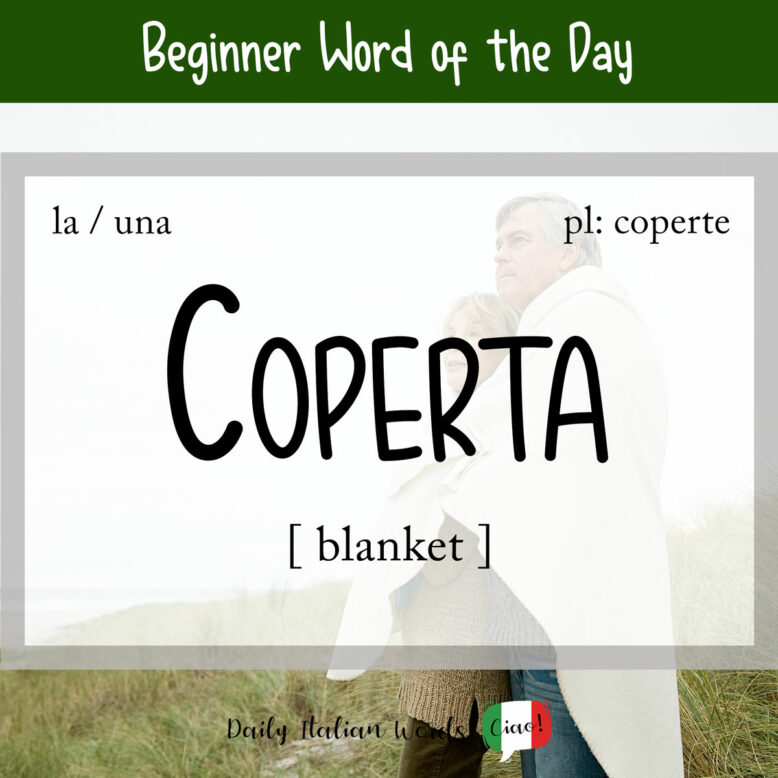The Italian word for blanket is coperta (feminine, plural: coperte). It derives from the past participle of the verb coprire (to cover) which is coperto (covered).

There are many different kinds of blankets, including:
- coperta di lana = wool blanket
- coperta di pile* = fleece blanket
- coperta di seta = silk blanket
- coperta di cotone = cotton blanket
- coperta ricamata = embroidered blanket
- coperta imbottita = quilted blanket
- coperta da viaggio = travel blanket
- coperta di sopravvivenza = foil blanket
- coperta elettrica = electric blanket
- coperta da stiro = ironing blanket
Note: pile is pronounced /pˈail/ and comes from the English word of the same spelling. Not to be confused with the plural of pila (battery).
Amore, mi passi la coperta di lana? – Quale coperta di lana? – Quella lì sul divano, dietro di te. – Non è lana, è pile. – Eh vabbè! Sempre una coperta è!
Can you pass me the wool blanket, my love? – Which wool blanket? – The one there on the sofa, behind you. – It’s not wool, it’s fleece! – Oh whatever! It’s still a blanket!

Sotto le coperte (lit. under the covers) is just another way of saying in bed, and it appears in the following expressions:
- rimanere sotto le coperte = to stay in bed (lit. to stay under the covers)
- mettersi sotto le coperte = to get under the covers
- ficcarsi sotto le coperte = to snuggle down under the covers
Mi metto sotto le coperte perché ho freddo ai piedi!
I’m going to get under the covers because my feet are cold!

Coperta can also refer to a slip cover or throw when it is used to cover a sofa, or the shaped rug used to protect horses from the cold.
Completely unrelated to blankets are the translations deck (as in the floor of a ship) and bound book cover. Sopra coperta means above deck, whereas sotto coperta translates as below deck. As for general book covers, you’ll hear the diminutive copertina more often.
Mi piace molto la copertina di questo libro. Quasi quasi lo compro.
I really like the cover of this book. I’m half-tempted to buy it.

Heather Broster is a graduate with honours in linguistics from the University of Western Ontario. She is an aspiring polyglot, proficient in English and Italian, as well as Japanese, Welsh, and French to varying degrees of fluency. Originally from Toronto, Heather has resided in various countries, notably Italy for a period of six years. Her primary focus lies in the fields of language acquisition, education, and bilingual instruction.


